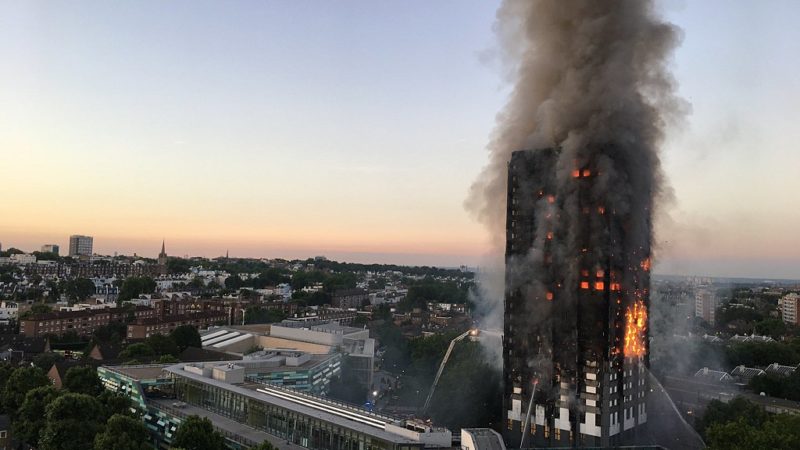An inquiry into the Grenfell Tower blaze is starting today. Here is all you need to know about the investigation and the victims' demands for justice.

A public inquiry into the fire that ravaged through a West London tower block last June killing 72 people is set to start today.
It will include testimonies from Grenfell residents, victims’ family members, and several authorities.
But will it be enough to bring peace to a community long ignored in Westminster’s corridors of power?
What is a public inquiry?
Public inquiries are government-ordered investigations into matters of public concern. They are led by a panel or an appointed person, often a senior dignitary such as a peer or a retired judge. Evidence is collected from a variety of documents, as well as testimonies from individuals and organisations related to the matter or event.
The aim of an inquiry is to find out what happened, to assess the risks of it happening again, and to make recommendations so to prevent it.
While a public inquiry has no judicial power, it can, however, collect the evidence needed to initiate a criminal or civil process.
They happen independently from government, but can provide advice for legislative reform.
Why was a public inquiry launched?
The public outrage that followed the tragedy of the 14th June 2017 placed significant pressure on Prime Minister Theresa May to call for a public inquiry. Indeed, a petition at the time demanded that the fire were investigated as a murder inquest, rather than an inquiry.
Reports suggested that the blaze had spread particularly rapidly due to the building’s cladding – a feature added to the tower after a £8.6 million refurbishing. Residents accused the local authority, the Royal Borough of Kensington and Chelsea, of turning a deaf ear to concerns about the building’s health and safety both before and after the regeneration works.
What will the inquiry investigate?
The Grenfell inquiry is split into two phases: the first will examine how the fire came into being and how it spread at such deadly speed. This collection of evidence will last until late October.
The second phase will look into residents concerns prior to the tragedy, as well as Kensington and Chelsea’s response. Its earliest start is set for December this year.
The two phases will also see the inquiry being conducted under slightly different structures. Phase one will be lead by Sir Martin Moore-Bick, a retired Court of Appeal Judge. During phase two Sir Martin will count with the help of a panel of two experts, after Grenfell campaigners expressed mistrust in Sir Martin’s capacity to judge alone a matter of such broad cultural and political implications.
Who will part of the public inquiry?
As mentioned, Sir Martin Moore-Bick will be leading the investigation.
Those offering testimony include 533 individuals (21 of which will be children), and 29 organisations, including 12 public bodies, 23 private companies and five trade unions.
The programme for today’s commemorative hearing. A link to the stream will be posted at 10:45. pic.twitter.com/wGuHbIGrwB
— Grenfell Inquiry (@grenfellinquiry) May 21, 2018
All survivors of Grenfell blaze will be granted core participant status, much like the main authorities involved, including Kensington and Chelsea Council and the company that managed the building, Kensington and Chelsea Tenant Management Organisation (KCTMO).
Core participants will be able to make opening and closing remarks and questions other witnesses, through their lawyers.
Every family of Grenfell Tower victims will be given the chance to make a statement, and dozens are expected to speak. The commemoration hearings are timetabled to last two weeks, with no time limit set on how long each family can speak about their loved ones.
What are the victims and their families demanding?
Campaigners with Justice 4 Grenfell argue that the breath and efficiency of the inquiry’s second phase is still undetermined as it is unknown whether the panel will have equal decision-making powers to the judge. They also demand to know how the experts are to be selected, and whether there will be a community consultation on their appointments.
Justice 4 Grenfell member, Yvette Williams MBE, wrote in a blog post on Sunday:
“It is vital that the PM and Inquiry team does not select panel members who look like us but ‘act’ like them.”
The Grenfell United campaign also tweeted that the day was “the beginning of a long road to justice & truth.”
Today is the beginning of a long road to justice & truth. The truth must prevail. We must get justice for the lives lost & the pain the community has suffered.💚 #Grenfell #GrenfellInquiry
— Grenfell United (@GrenfellUnited) May 21, 2018
Many also complained that both phases should be led by a panel, rather than by Sir Martin alone.
Joana Ramiro is a reporter for Left Foot Forward. You can follow her on Twitter for all sorts of rants here.
Left Foot Forward doesn't have the backing of big business or billionaires. We rely on the kind and generous support of ordinary people like you.
You can support hard-hitting journalism that holds the right to account, provides a forum for debate among progressives, and covers the stories the rest of the media ignore. Donate today.



